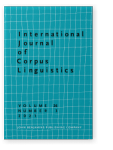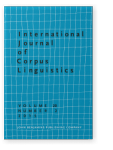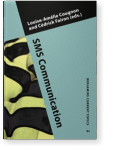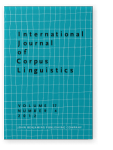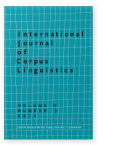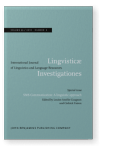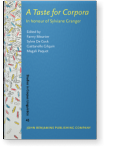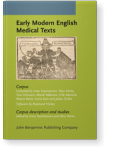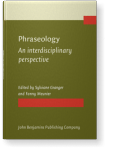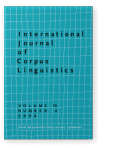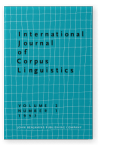Paul Rayson
List of John Benjamins publications for which Paul Rayson plays a role.
2021 Problematising characteristicness: A biomedical association case study International Journal of Corpus Linguistics 26:3, pp. 305–335 | Article
Keyness is a commonly used method in corpus linguistics and is assumed to identify key items that are characteristic of 1 corpus when compared to another. This paper puts this assumption to the test by comparing case study corpora in the fields of genetic, immunological and psychiatric… read more
2015 A computer-assisted study of the use of Violence metaphors for cancer and end of life by patients, family carers and health professionals International Journal of Corpus Linguistics 20:2, pp. 205–231 | Article
This study combines quantitative semi-automated corpus methods with manual qualitative analysis to investigate the use of Violence metaphors for cancer and end of life in a 1,500,000-word corpus of data from three stakeholder groups in healthcare: patients, family carers and healthcare… read more
2014 “i didn’t spel that wrong did i. Oops”: Analysis and normalisation of SMS spelling variation SMS Communication: A linguistic approach, Cougnon, Louise-Amélie and Cédrick Fairon (eds.), pp. 217–237 | Article
Spelling variation, although present in all varieties of English, is particularly prevalent in SMS text messaging. Researchers argue that spelling variants in SMSes are principled and meaningful, reflecting patterns of variation across historical and contemporary texts, and contributing to the… read more
2012 Children Online: A survey of child language and CMC corpora International Journal of Corpus Linguistics 17:4, pp. 443–481 | Article
The collection of representative corpus samples of both child language and online (CMC) language varieties is crucial for linguistic research that is motivated by applications to the protection of children online. In this paper, we present an extensive survey of corpora available for these two… read more
2012 The language of Islamic extremism: Towards an automated identification of beliefs, motivations and justifications International Journal of Corpus Linguistics 17:2, pp. 259–286 | Article
Recent studies have sought to understand individuals’ motivations for terrorism through terrorist material content. To date, these studies have not capitalised on automated language analysis techniques, particularly those of corpus linguistics. In this paper, we demonstrate how applying three… read more
2012 “i didn’t spel that wrong did i. Oops”: Analysis and normalisation of SMS spelling variation SMS Communication: A linguistic approach, Cougnon, Louise-Amélie and Cédrick Fairon (eds.), pp. 367–388 | Article
Spelling variation, although present in all varieties of English, is particularly prevalent in SMS text messaging. Researchers argue that spelling variants in SMSes are principled and meaningful, reflecting patterns of variation across historical and contemporary texts, and contributing to the… read more
2011 Automatic error tagging of spelling mistakes in learner corpora A Taste for Corpora: In honour of Sylviane Granger, Meunier, Fanny, Sylvie De Cock, Gaëtanelle Gilquin and Magali Paquot (eds.), pp. 109–126 | Article
Manual error tagging of learner corpus data is time consuming and creates a bottleneck in the analysis of learner corpora. This had led researchers to apply techniques from the area of natural language processing to assist in the automatic analysis of such data. This chapter presents the novel… read more
2010 Improving the precision of corpus methods: The standardized version of Early Modern English Medical Texts Early Modern English Medical Texts: Corpus description and studies, Taavitsainen, Irma and Päivi Pahta (eds.), pp. 279–290 | Article
2008 18. Automatic extraction of translation equivalents of phrasal and light verbs in English and Russian Phraseology: An interdisciplinary perspective, Granger, Sylviane and Fanny Meunier (eds.), pp. 293–309 | Article
This chapter aims at bridging the functionalist theoretical perspective on word usage with corpus-based studies. We are dealing with the issue of construction of reliable lists of what is called ‘phraseological units’ in general linguistics literature or ‘multi-word expressions’ (MWEs) in… read more
2008 From key words to key semantic domains International Journal of Corpus Linguistics 13:4, pp. 519–549 | Article
This paper reports the extension of the key words method for the comparison of corpora. Using automatic tagging software that assigns part-of-speech and semantic field (domain) tags, a method is described which permits the extraction of key domains by applying the keyness calculation to tag… read more
1997 Social Differentiation in the Use of English Vocabulary: Some Analyses of the Conversational Component of the British National Corpus International Journal of Corpus Linguistics 2:1, pp. 133–152 | Article
In this article, we undertake selective quantitative analyses of the demographi-cally-sampled spoken English component of the British National Corpus (for brevity, referred to here as the ''Conversational Corpus"). This is a subcorpus of c. 4.5 million words, in which speakers and respondents (see… read more
